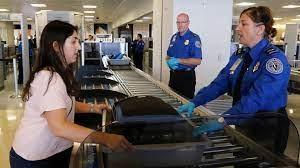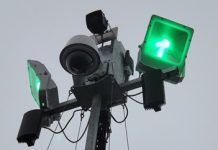Unions representing airport security screeners say turnover for new employees is high despite efforts to hire more workers, with as few as one in three recent hires still on the job in some regions.
Major delays and flight cancellations at airports across Canada earlier this year drew scrutiny from passengers and politicians alike. Among other measures to ease the chaos, the government promised to ramp up hiring of security screeners — and did so, with more than 2,000 new screeners hired since April.
Now the pressure is on for airports to have a smooth holiday season, but high turnover and widespread bargaining between security screeners and their employers could throw another wrench into operations.
David Lipton with the United Steelworkers union, which represents about 2,000 airport security screeners at 41 airports, said only about a third of the screeners hired in the past few months have stayed on, with the rest either quitting, leaving during the training period or not showing up to training. Other unions reported similar turnover levels for recent new hires.
For example, Lipton said the Ottawa airport needs between 350 and 380 workers to be adequately staffed, though security employer GardaWorld disputed this, saying their target is below 350. Right now, Ottawa has around 270, up from around 200 earlier this year, Lipton said.
Security screeners at Canadian airports work for third-party contractors hired by the Canadian Air Transport Security Authority (CATSA). There are three main contractors providing screeners at airports across Canada: Allied Universal, Securitas and GardaWorld.
CATSA said the average reported attrition rate for security officers during the quarter ended Sept. 30 was 12.2 per cent. Spokesperson Suzanne Perseo said the agency is ready for the upcoming holiday season.








